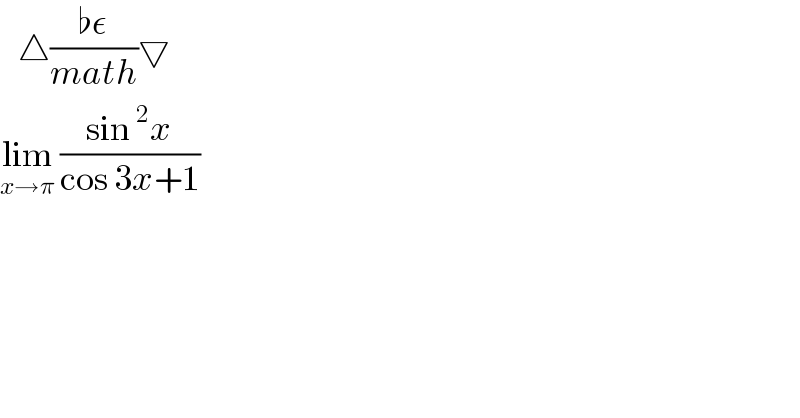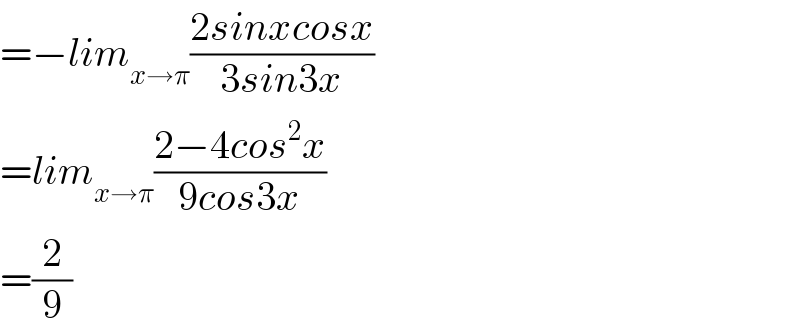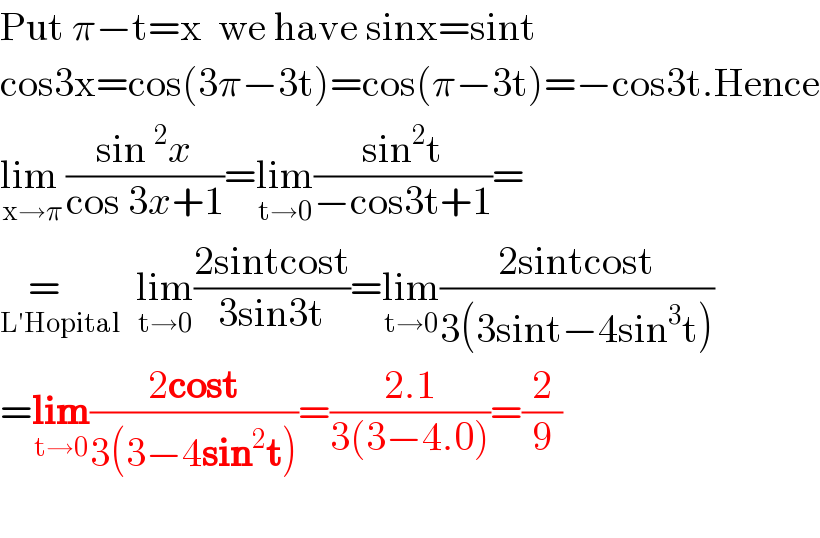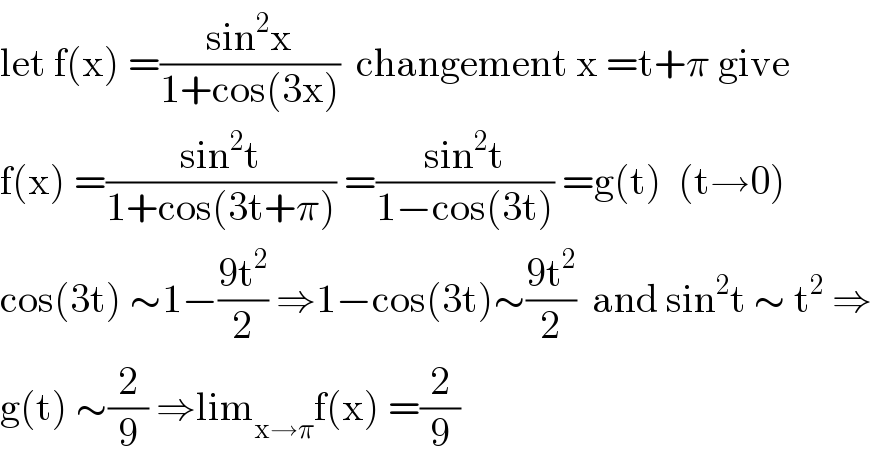
Question and Answers Forum
Question Number 109728 by bemath last updated on 25/Aug/20

Commented by bemath last updated on 25/Aug/20

Answered by Her_Majesty last updated on 25/Aug/20

Answered by bobhans last updated on 25/Aug/20

Answered by 1549442205PVT last updated on 25/Aug/20

Answered by mathmax by abdo last updated on 25/Aug/20

